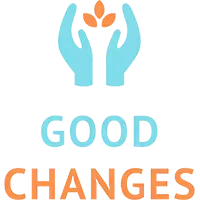Knowing the Difference Helps You Know What to Do
One of the key things that helps people feel less overwhelmed and more motivated to take care of themselves is setting boundaries. But before people can set boundaries better, sometimes people have to wade through a lifetime of feeling bad about themselves. This is important and deep work. To keep it simple, I am naming three different “bad states.”
You may notice the “bad feeling” in your stomach. But underneath the bad feeling, you may be feeling one of these three feelings: Shame. Blame. Ick.
Let’s figure out which one might be happening at any given moment.
First, there’s what I call ICK. Great clinical term, right? ICK is how you know your boundaries are being crossed. Ick is when you go out on a date with someone, or kiss someone, or are rushed along before you feel really ready. That’s the most obvious example of ick. Ick can be confusing because maybe you do like someone, but you just aren’t ready. Or, you like a person, but not that way. Or, the person really likes you, but you don’t like them. With all of these, a bad feeling comes up. With help, and space, you can see that that bad feeling is what I call ICK. Ick can also be when you feel pressured by other people to do something you really don’t want to do. It can take time to realize that this is what you are feeling. Maybe you are trying to fit in with a group of friends and you feel you have to try really hard to fit in. It starts to wear you down and you don’t feel natural. Ick can be really clear, but it can also be very confusing. Also, it can be confusing to know what you should do about ick. Generally though, ick happens when you really, really want to say NO. You just haven’t figure out how. Yet.
Then there’s guilt. Guilt is when you have done something wrong. When I talk about doing something wrong, I use the example of kicking a dog. That’s an obvious example of something wrong. No one should kick a dog. Doing something wrong is when you either hurt some other being, or you may have hurt some other being, or even worse, harmed them. To be clear, if someone’s feelings get hurt because you are defending yourself, that is not wrong. Hurting and harming someone who is less powerful than you is what is wrong. Someone younger, or smaller, or your employee, or a pet. The truth is, we all do things that are wrong. We lose our temper, we yell at someone, or we are irresponsible. When you feel bad after this, you are feeling guilty. We regret what you did. When we have done something wrong, it is important to make amends. We have to fix it, and the person that we harmed gets to tell us what to do to make it better. When we listen to others, especially the person who has been hurt, we can really do something about what we did. We can make it better. This isn’t always so simple. But this is the first step to feeling better.
Last, there’s shame. (And its sibling, blame.) Shaming and blaming is when people basically name call. Or you name call yourself. If we want to make it sound more sophisticated, it is when we make a negative attribution. But basically, it is when we tell someone else that they are bad. Or sick. Or nasty. Or anything else. It isn’t a labelling of the behavior. It is a labelling of the person. And it feels awful. Every single human has been shamed at some point. Every single human has been blamed. Most of us have shamed and blamed other people. We did something wrong, and we were humiliated for it. Or we did nothing wrong. But we were humiliated anyway. Shame feels awful. Many of us feel it all the time. And, we do anything to avoid it. In fact, for many people, our anxiety in life is related to a fear of being shamed. Of being embarrassed. Humiliated. Doing something wrong and being caught. Being thrown out of the group and no longer being accepted. It is terrifying. Our existence as humans is based on being seen, being considered good, being considered part of a community. When people shame us, or blame us, even in small ways, it can be the worst experience of our lives. We want to avoid it at any cost. But the truth is, shame and blame don’t do anyone any good. We can hold people accountable for wrongdoing without shaming and blaming. And the way that we add a negative assumption to other people’s behavior--claim that we know what they were thinking when we did a thing that hurt or harmed us or someone else--that is a natural human way to try to control the world. But it isn’t necessarily accurate.
When it comes to shame, and blame, what I’d like is for you to let it go. It isn’t helping you do the right thing. The fear of it isn’t helping you be a better person. It is merely keeping you from being the authentic, kind person that you can be. You aren’t perfect. You will make mistakes.
But, and this brings us to guilt, the chances are good that many of your mistakes did not come from a desire to hurt or harm. They were probably either accidental or arose from a strong desire to avoid a bad thing (which, of course, did not actually work--more about that another time). So, you did something or behaved in a way you regret. We don’t want to pretend you didn’t. We aren’t here to make you feel good about doing something wrong. We are here to help you discern what you need to do to fix it. The negative thoughts, the way that you shame yourself--those aren’t helping. See what you can do to make it better. What you need here is a sincere desire, coupled with wisdom, to change.
And that brings us back to ICK. When we feel icky, the main thing we want to do is to protect ourselves. Lots of times, people make you feel bad when you try to set your boundaries. But that isn’t your fault. That means that someone else has failed to complete what I call the boundary circuit. Don’t let shame stop you from telling someone no. (Or yes, if that’s what you want!) You are who you are. You want what you want. It is OK to say no. It’s OK to say yes!
With all of these different experiences, it takes a lot of work to learn how to get the support you need to say yes to what you want and believe, no to what you do not, to step back from the shame and embarrassment, and to walk forward to take responsibility if and when you do things you regret.
But without knowing the difference it is hard to know where to start. So, here you are--at the starting gate. You can do this. Let’s let go of the shame, and step forward to claim your own life.


